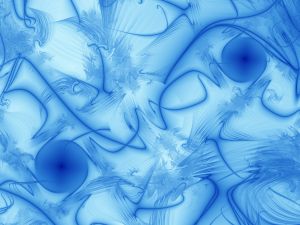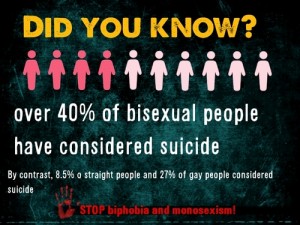Does science and mathematics accurately reflect the reality of life? Of course, this is opposed to subverting essential qualities of life. Can it be arguably asserted that science and math even have a rightful place within society? The question might seem obvious, and you may think I’m insulting your intellect by presenting the question. But there is a specific point I’m trying to make. So, if you’ll just be patient, then I think it might be worth trying to revaluate certain modern aspects of our worldview that we often take for granted.
First: science and math. Inherently, they both posit the authority of reason and logic and reject the senses by a NeoPlatonistic view that originated nearly five-hundred years ago. Through this post-Enlightenment position, reason operates as a means to manipulate the way in which we see the world through universal spectacles. In order for the world to be universal, then there must be universal laws, theories, and/or ideas accepted, such as gravity, the scientific method, and Euclidean geometry—or non-Euclidean geometry, depending on which you like. And thus, for us to accept anything universal there must be truth.
Truth is where science and math become a little tricky. Truth cannot be created, destroyed, or anything. It simply is. Truth exists according to science and math, and mostly you’ll see scientists and mathematicians trying to grapple with discovering it. Of course, because we are humans and living beings, our perception of truth is skewed, or biased, to our specific interests—in which neither scientist nor mathematician is exempted from such. So, in their pursuit of truth, they’re invariably unable to attain it until their death.
At the end of Sophocles play Oedipus Rex, a general Ancient Greek theme is expressed: that man is not truly fortunate until he is dead. The same maxim can be expressed about truth. One cannot know truth until one is dead. Unfortunately, that also means truth means nothing, since it is static. And if truth means nothing, then it’s nihilistic and denies basic qualities of life.
To go even further, science and math operate under precepts that deny contradictions. Sure, you can discover certain contradictions in both fields, but then they redefine themselves to accept those original contradictions as discovered truth. Contradictions means anomaly, and anomalies are often times displaced within science and mathematics as either marginalized or distractions from a basic truth. Contradictions, though, are the foundation of life. Life needs its inverse, death. God—if you believe in one—needs the inverse, the devil. Political parties thrive off their opposition, conservatism and liberalism. Contradictions are not merely an inescapable quality of life, they are life.
Thus, this leads us to what life is. Perhaps not the meaning, since that’s debatable, but rather the literal components of life. Heraclitus said life is flux, that we cannot step in the same river twice, and that everything’s in motion. Well, if life is in motion, then how can science and mathematics maintain basic principles that state that life is truth, an inherently immovable concept fixated on a singularity? This is perhaps one of the major problems with the way in which we look at the world. It demonstrates why, for example, people can’t accept global climate change—how can you accept change from institutional stagnation? If, as science and math like to pervert, life is truth, then there can be no change, and so despite scientists discovering certain phenomenon like global climate change, they subvert their very cause because they’re unable to acknowledge the flux and contradiction of life.
 Could science and mathematics be an optical illusion, an accepted dialogue that we’ve all been participating in? If it’s a dialogue, then it means we’ve been using dogmatic language to rationalize their necessity despite a clear perceptual reality of the flux within life. The language of math and science teaches us to disregard change in the same manner that many religions tell us to disregard death—e.g., the Judeo-Christian teaching of an eternal afterlife when we die relates to how scientists teach universal principles.
Could science and mathematics be an optical illusion, an accepted dialogue that we’ve all been participating in? If it’s a dialogue, then it means we’ve been using dogmatic language to rationalize their necessity despite a clear perceptual reality of the flux within life. The language of math and science teaches us to disregard change in the same manner that many religions tell us to disregard death—e.g., the Judeo-Christian teaching of an eternal afterlife when we die relates to how scientists teach universal principles.
The war by which science and math is waging against reality is through building a conceptual world and insulating society within its protective barriers so that we might not have to deal with the harsh reality of what we’ll inevitably incur within life. And that is pain, suffering, tragedy, and eventually death. Life is the creation by which death cures, since creation demands destruction, and yet still we seek medical science and other preventive measures within science and math to ensure that we prolong life, prolong the Great Contradiction. That is a cruelty, a violation of several human rights measures, and a clear hypocrisy in thought.
But, this does not mean that we cannot and should not redefine and reframe the meaning of science and mathematics to discover the change. In order for us to do so, though, we would have to dismantle this fascination of universality that acts as a barrier to grasp the gravity of life’s instability. This would mean a destruction of value sets that have kept us very comfortable for many years, but it has also stunted possibility. Perhaps rather than framing the question of why we need to do better in math and science, it should revolve around the idea of progressing to the next necessary change in society to become what we need to become.
Science and Math: Perils of Modern Thought,




